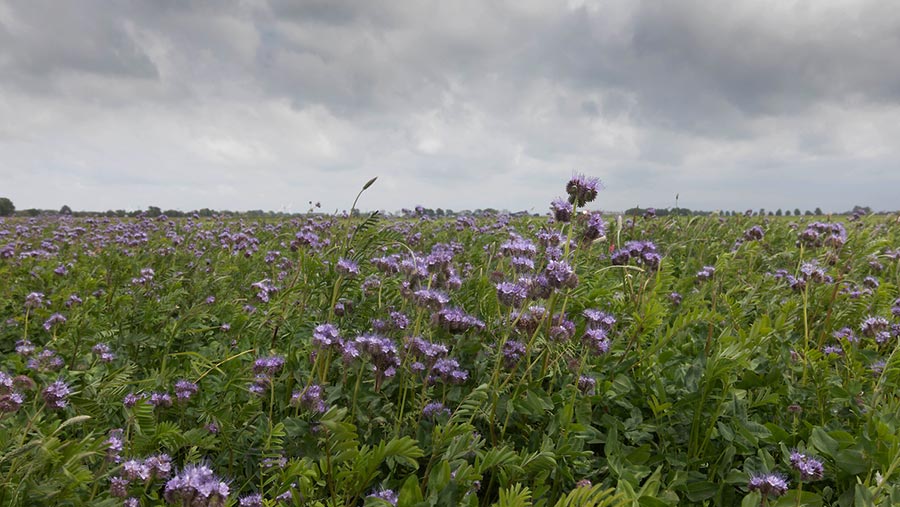Greening measures to be scrapped for 2021, says Defra
 © Tim Scrivener
© Tim Scrivener Defra has confirmed that farmers in England will no longer have to comply with EU greening measures in order to receive their full BPS money in 2021.
Under current arrangements, farmers claiming BPS need to maintain at least 5% of their land as an ecological focus area (such as buffer strips and cover crops) if they have more than 15ha of arable land, and follow strict management rules on permanent grassland.
See also: What the new Agriculture Bill contains for farmers
Normally they would also have to grow at least three different arable crops if they have more than 30ha of arable land – the so-called “three crop rule” – though this was waived for 2020 due to the problems of crops establishment following a wet winter and spring.
Announcing the change, Defra secretary George Eustice said the greening requirements had done little to enhance the environment.
“We believe that farmers will benefit from this reduced bureaucratic burden next year, as we begin the move towards our new Environmental Land Management (ELM) scheme, which will deliver greater benefits for the environment,” he said.
Greening payments typically account for 30% of the total BPS.
Mr Eustice also confirmed that the BPS will be phased out during the seven-year transition to 2028.
This will amount to a 5% cut on the first £30,000 in BPS receipts in 2021, rising to 25% cuts above £150,000 – though no details are available for subsequent years.
Defra has said the total budget for agricultural support will not be reduced during the lifetime of the current government (to 2025), and suggested that for many farmers, cuts in BPS can be made up through productivity grants or ELMs payments.
Mixed reaction
The Tenant Farmers’ Association (TFA) described the scrapping of greening payments as “good news”.
“Greening has always been of questionable benefit and has caused major compliance issues for farmers,” said chief executive George Dunn.
“As English farmers plan cropping for next year, it’s good to know that greening will no longer apply.”
But environmental group the RSPB said, while greening was far from perfect, the failure to have an alternative system in place “sends a signal to farmers that nature doesn’t matter”.
Tom Lancaster, head of land use policy, said: “Hundreds of thousands of acres of field corners, margins and buffer strips will now fall out of paid-for management, as Defra ploughs more than £500m of greening payments back into no-strings subsidy.
“This may play well as a headline-grabbing announcement, but it does nothing to suggest that Defra has a coherent plan for how to transition to a system of farm payments that is genuinely green.”
The TFA also bemoaned the lack of information emerging from government concerning its future policy plans, having expected more details before the end of July.
“With the Agriculture Bill completing its committee stage in the House of Lords, it had been hoped that the government would provide an update to farmers hungry for information,” said Mr Dunn.
“It is massively disappointing that Defra has decided not to provide further details on its future policy plans at this stage.”
Defra says it will be setting out more detail in the autumn.
